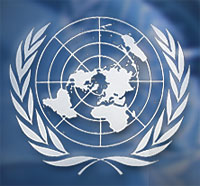
Even as Cuba continues to move toward greater political and diplomatic openness during Raul’s presidency, the Communist regime’s arbitrary detentions and other human rights abuses remain a serious issue—one for which the island regularly receives criticism from the international community. Cuban officials publicly declare to have a clear conscience and deny accusations of abuse, carefully classifying all jailed dissidents as “mercenaries” of the U.S. government in order to maintain that they do not hold any “political prisoners.” But the fact remains that over 200 individuals, including 23 journalists, are held in Cuban detention centers for their political views. On top of this, there were more than 1,000 arbitrary arrests of suspected dissidents during the course of 2008. Meanwhile:
Yet an important opportunity has presented itself. After years of refusing visits by representatives of the UN Human Rights Commission, claiming that the group was manipulated by the United States, Havana agreed to review by the newer UN Human Rights Council. All 192 UN member states must periodically undergo scrutiny of their human rights records by this same process of review. Cuba’s session was held on February 5, 2009 and resulted in a number of prescriptions from the Commission, including:
… to accede to the Rome Statute of the International Criminal Court (ICC); to ratify the International Covenant on Civil and Political Rights; to ratify the International Convention on economic, social and cultural rights… to give importance to human rights training for government officials at all levels… to establish a recurrent system of review of its prisons by the United Nations or other relevant international observers; to ensure the right to equality before the courts and tribunals, and to a fair trial; and to ratify the Optional Protocol to the Convention against Torture… to lift restrictions on rights on the freedom of expression and show greater tolerance for Cubans to express opposing views peacefully; to release all remaining political prisoners and to reintegrate them into the community; to guarantee that independent journalists, human rights defenders and political dissidents had the possibility to exercise their basic freedoms without the risk of harassment, intimidation or persecution; and to refrain to using such laws such as dangerousness, enemy propaganda and contempt for authority to restrict the rights of freedom of expression and association.
… and more. No representative from the United States participated in the review, and a U.S. State Department spokesperson explained that the country was not yet certain it would support the Council.
The UN Human Rights Council’s report provides little basis for making a decision, as it stops short of any clear conclusions about the state of human rights (read the current draft here). This is its ultimate weakness, as each critique is presented as mere suggestion from one or a few actors within the Council. Its addendum that each conclusion/recommendation “should not be construed as endorsed by the Working Group as a whole” effectively removes from the UN its own declarative power and therefore its ability to affect change. It becomes impossible to judge the balance of the report, a point aptly illustrated by international headlines as varied as “UN Human Rights Council slams Cuba at its Universal Periodic Review” and “Cuba Passes UN Review with Flying Colors.”
There are a few things that are clear here, however. First, dissidents in Cuba are often arbitrarily detained or jailed and mistreated, and many are under lengthy sentences for up to 15-25 years. This is documented by several institutions and must not be ignored by the international community. The UN Human Rights Council has the responsibility, as the only organization with real reviewing power of the Cuban regime’s abuses, to condemn repressive techniques employed by the government and press for changes.
Second, certain actions taken by the United States could remove Cuba’s excuses for the continued detention of dissidents. Currently, Havana blames US policies that seek to strangle and/or overthrow the regime for the need to detain or jail certain individuals: as “mercenaries,” these individuals could be dangerous. By seeking to slowly engage Cuba through multilateral institutions and demonstrate a change in its policies toward the island, the United States could remove the credibility of Havana’s claims entirely, and perhaps clear a path for the UN to pressure for reform in Cuba.